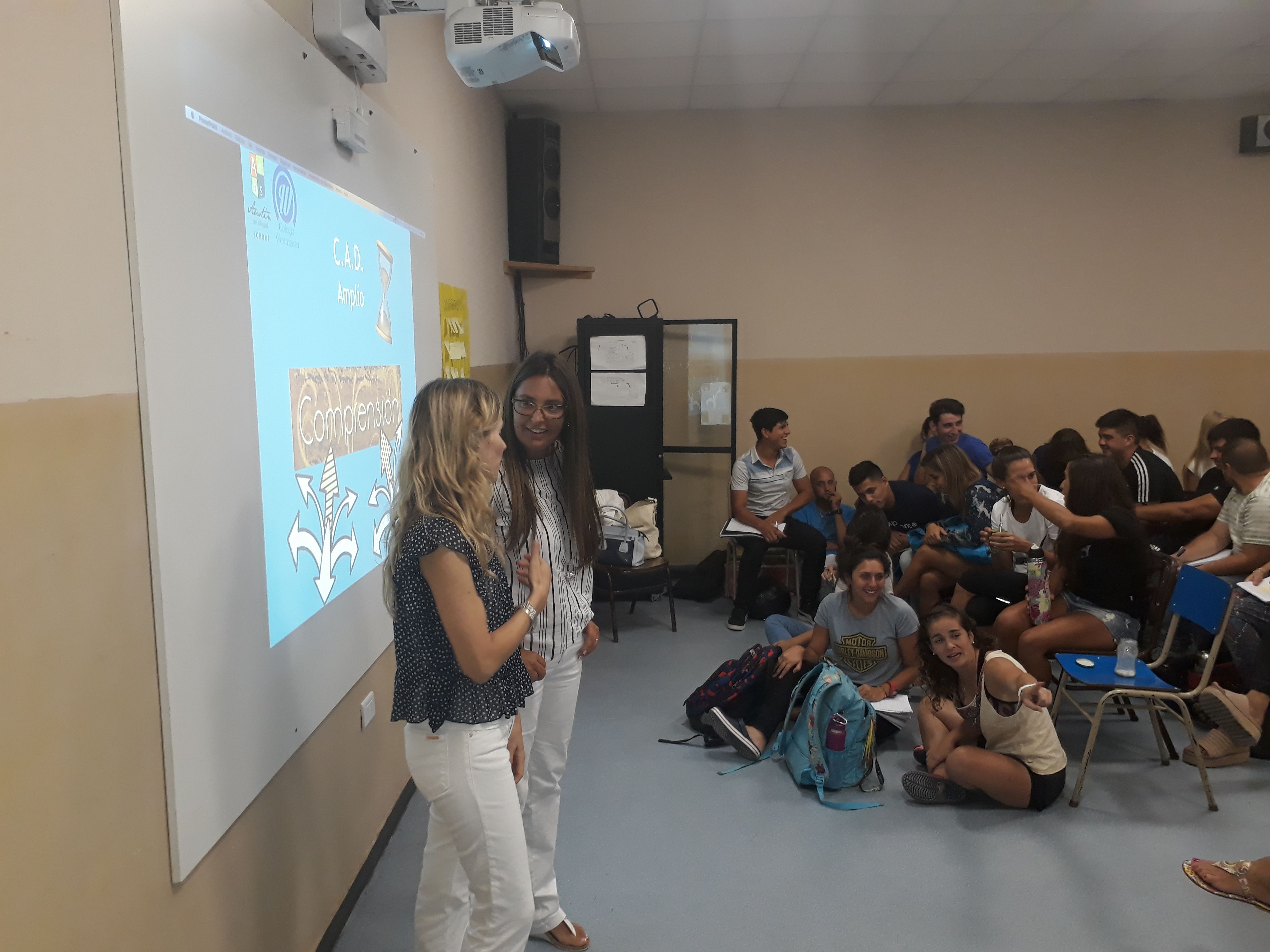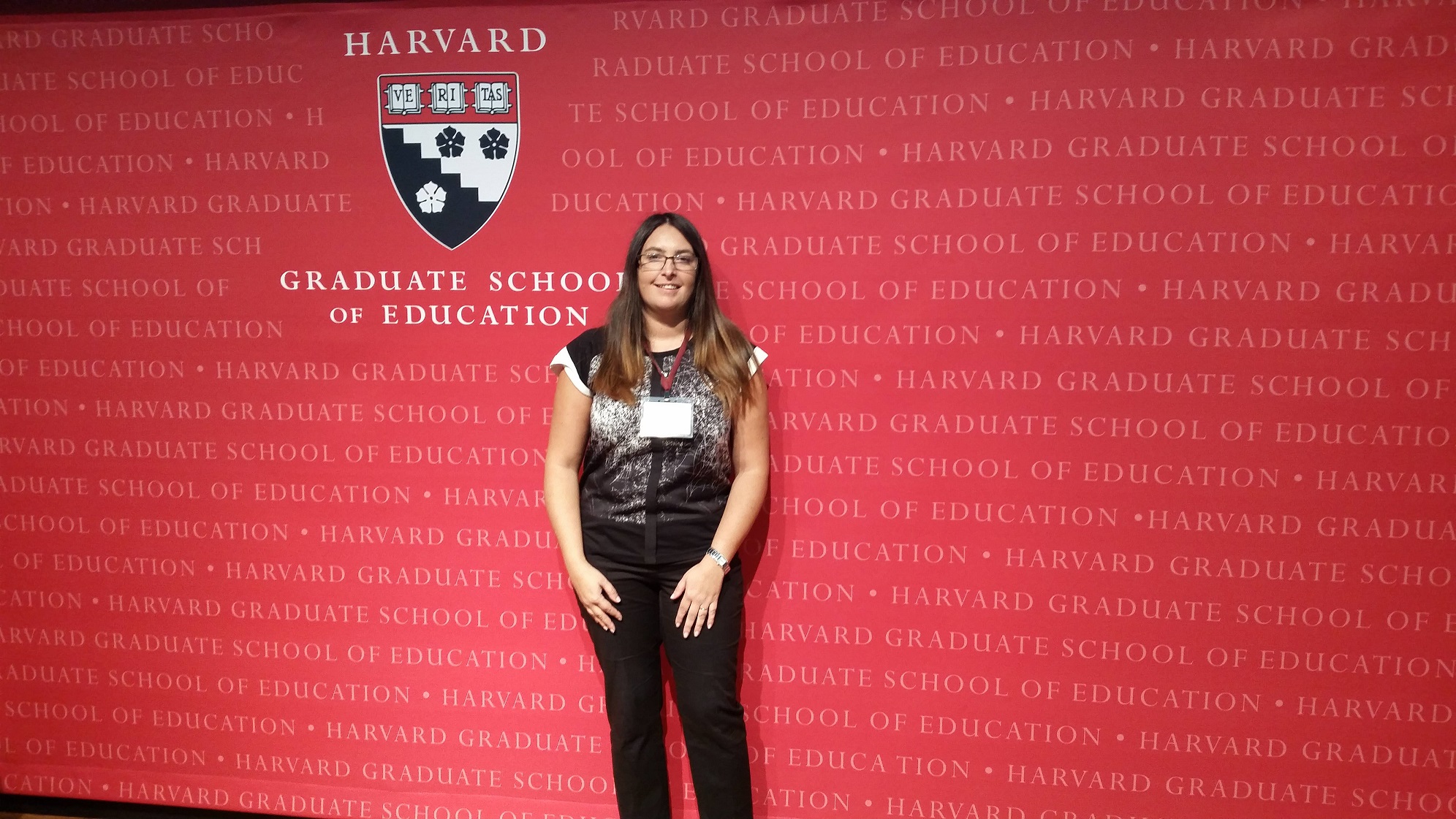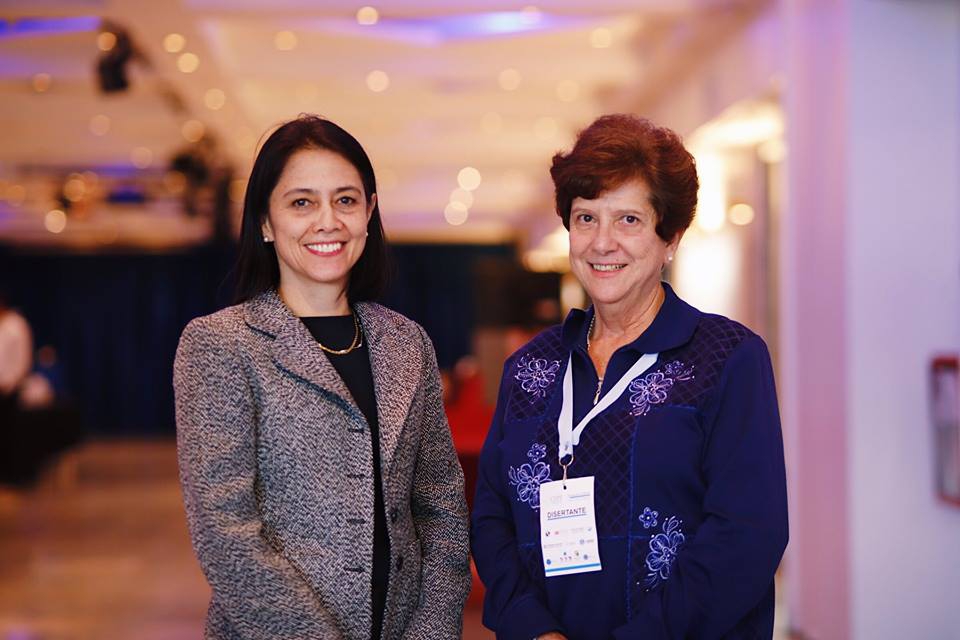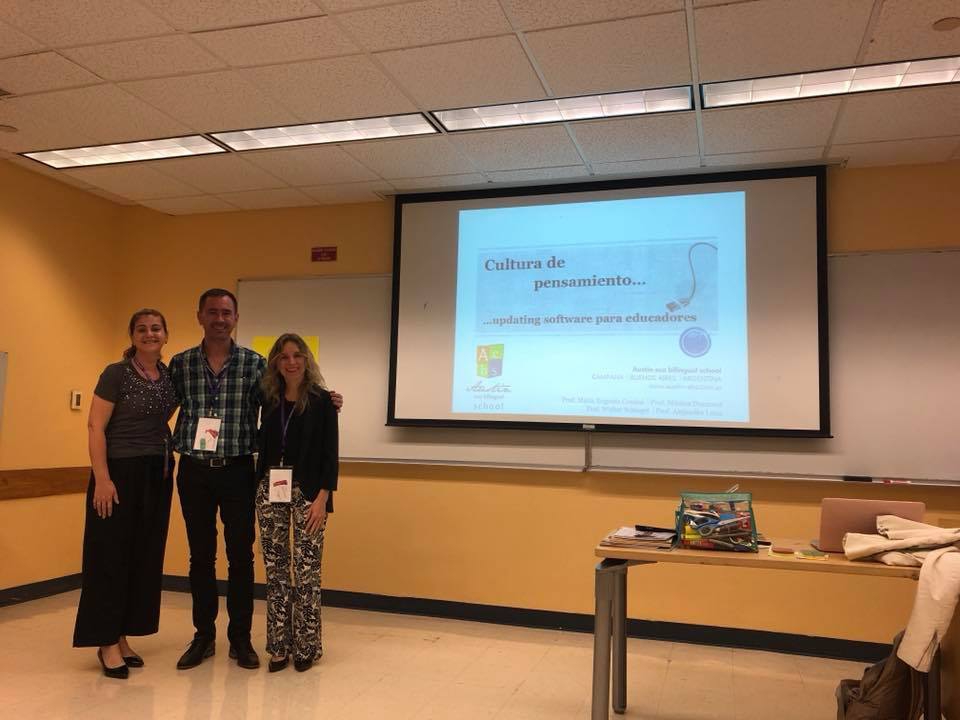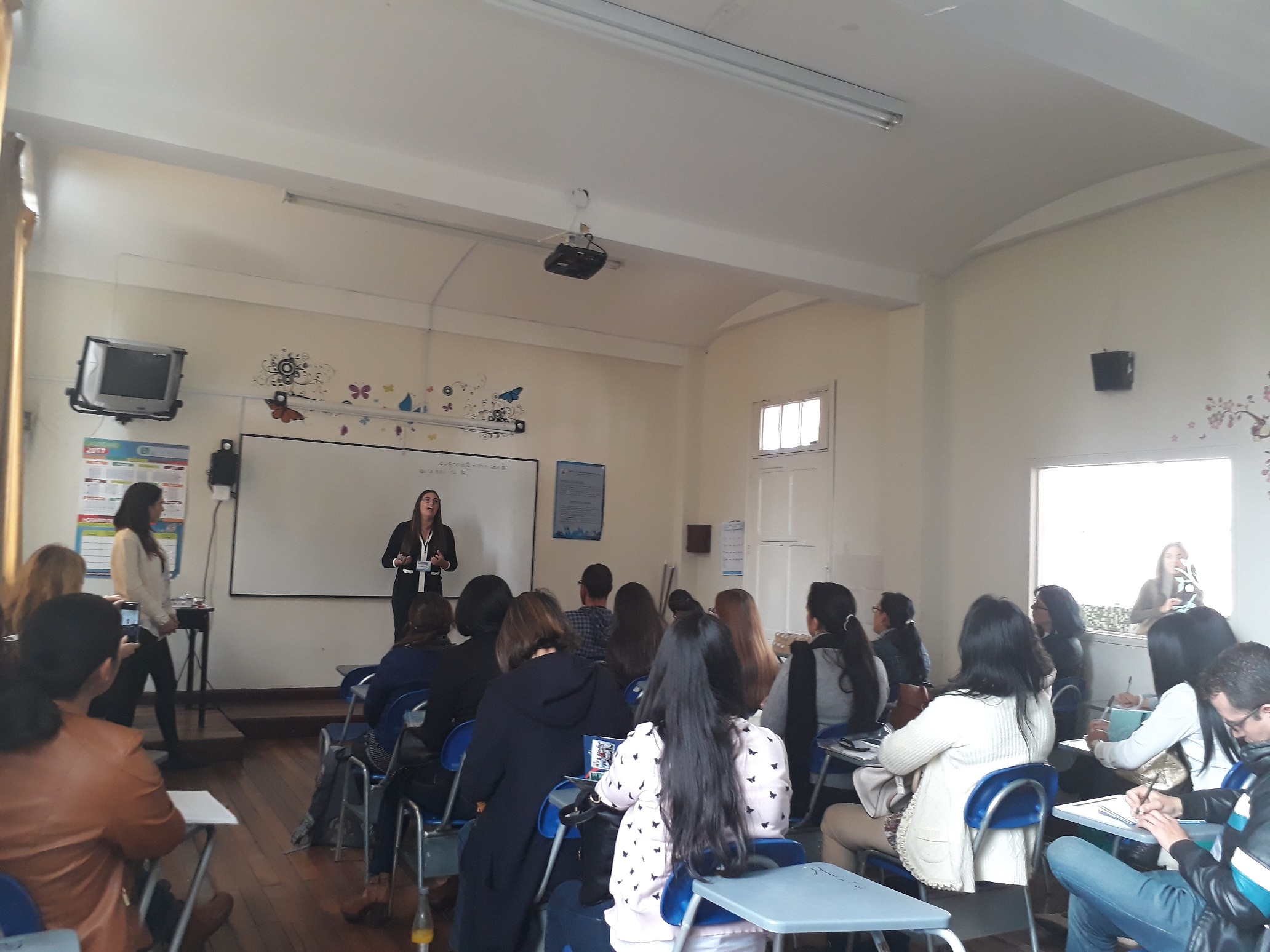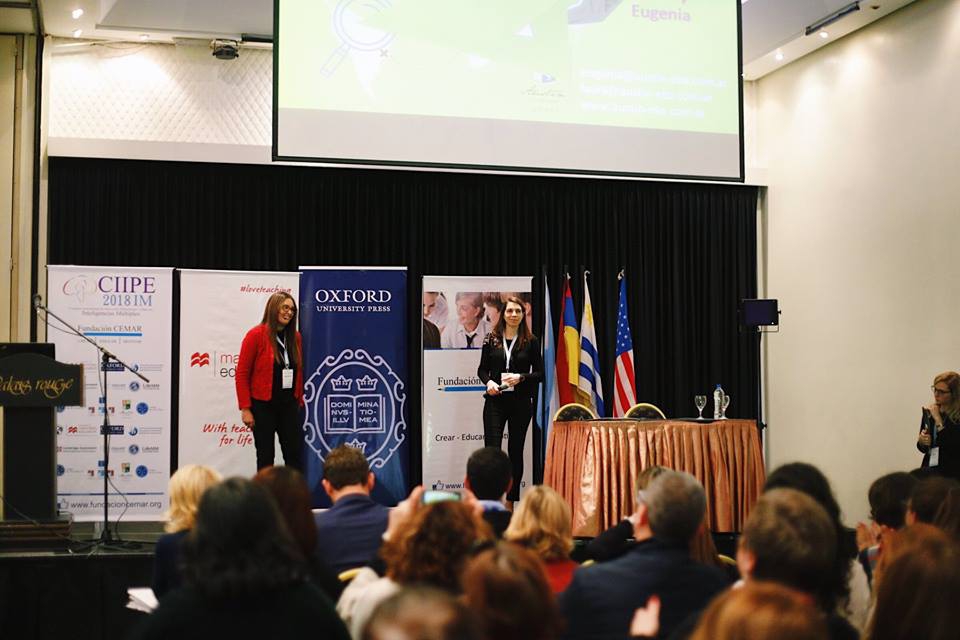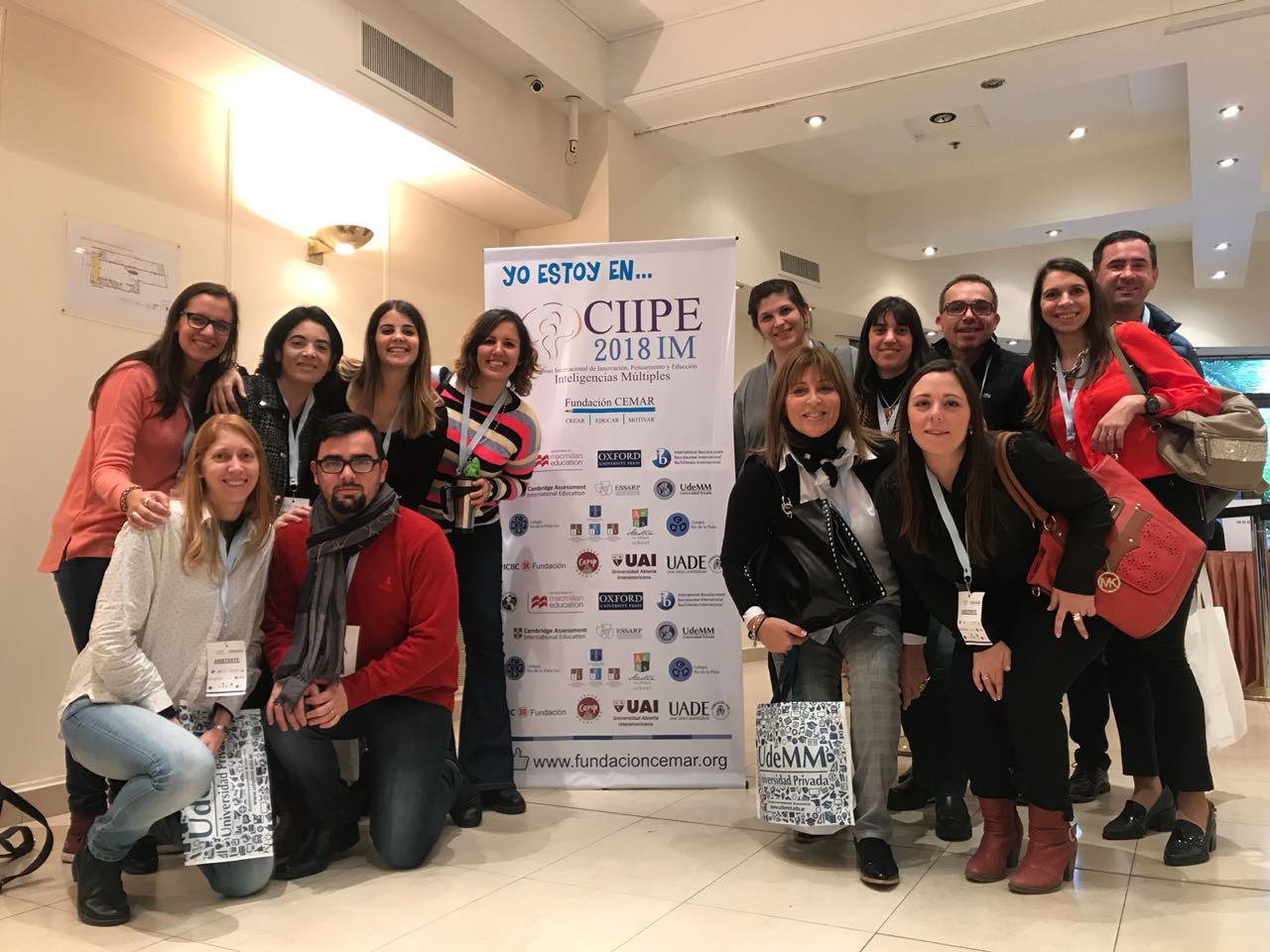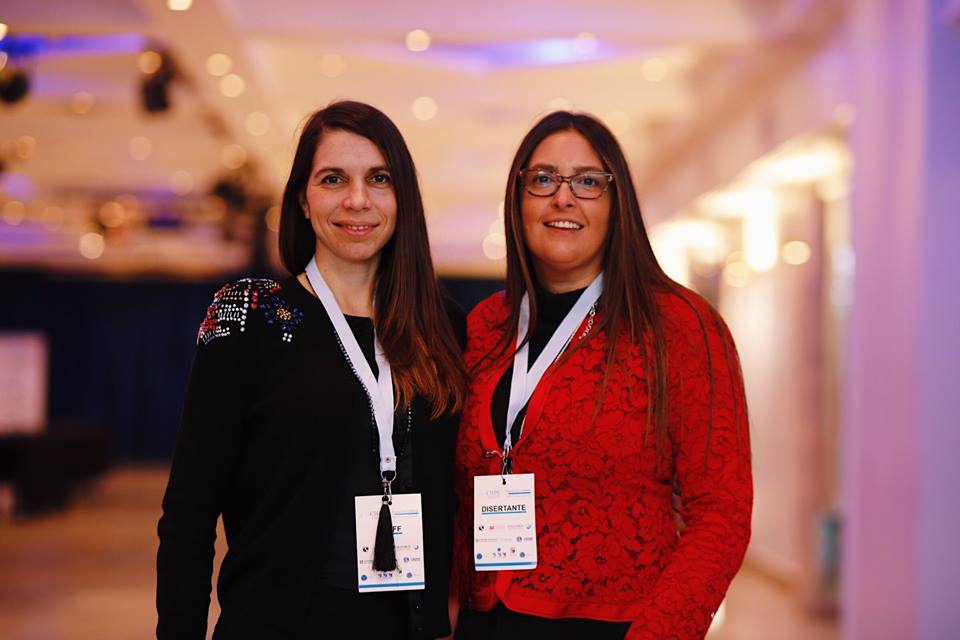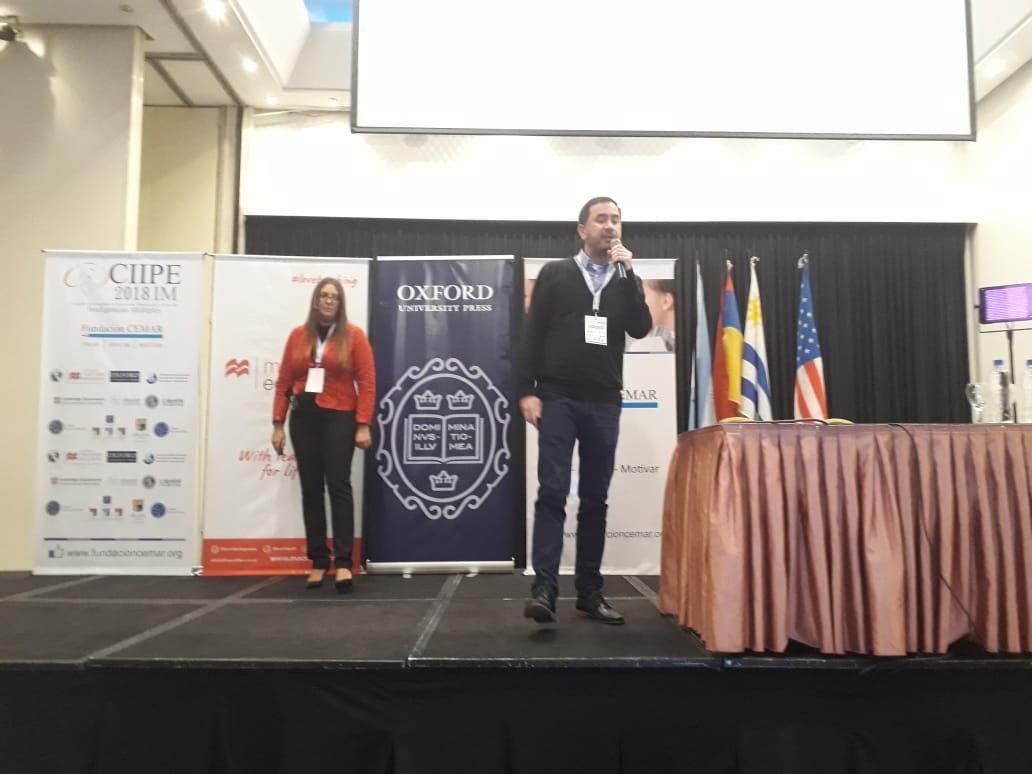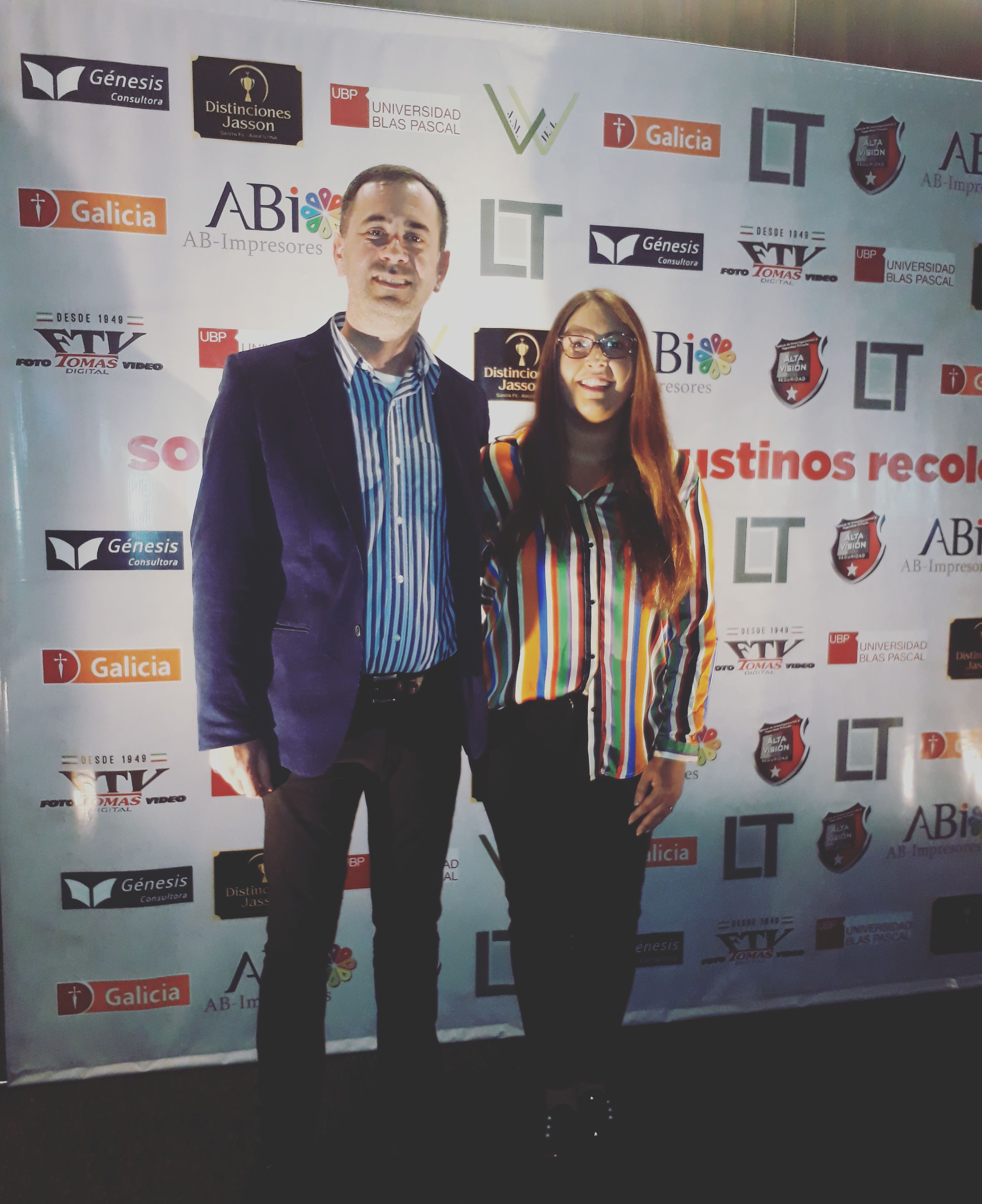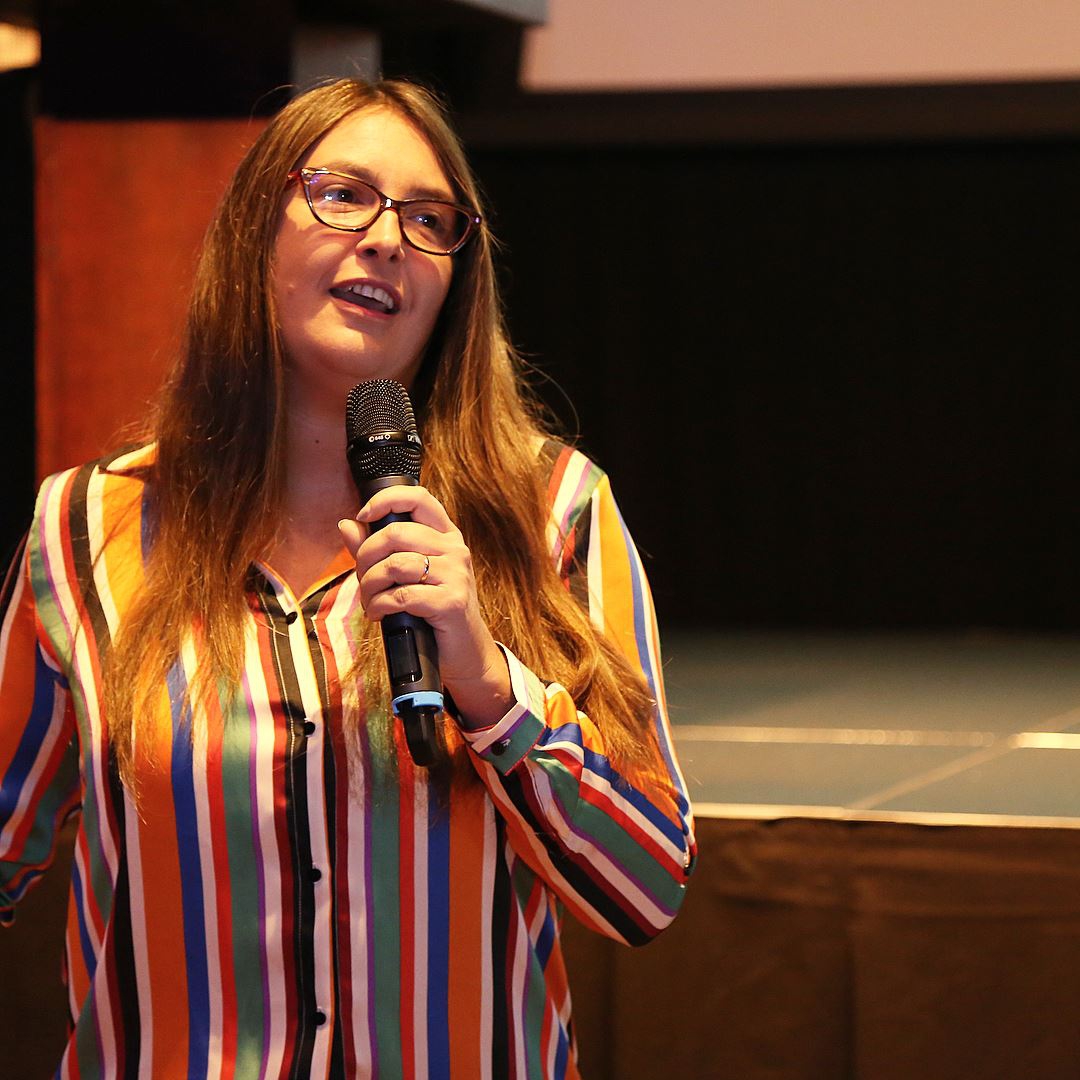Set Language
Login
Use Facebook or an email
or
Signup for free
Use Facebook or an email
or
Reset password
Enter email to reset password
The educational proposal of Austin EBS is based on the ideas developed by the Project Zero research of the Graduate School of Education at Harvard University in the United States.
Project Zero was created by the philosopher Nelson Goodman in 1967. Howard Gardner and David Perkins were co-directors of the project in the 70s, and are currently leading researchers.
Fifty years after its foundation, Project Zero works in the areas of multiple intelligences, visible thinking, global competences and culture of thinking.
Project Zero was created by the philosopher Nelson Goodman in 1967. Howard Gardner and David Perkins were co-directors of the project in the 70s, and are currently leading researchers.
Fifty years after its foundation, Project Zero works in the areas of multiple intelligences, visible thinking, global competences and culture of thinking.
“Learning is a consequence of thinking”- David Perkins
It is defined as "Cultures of Thinking" (Cultures of Thinking-CoT) are places where, both collectively and individually, thinking is valued, visible and promoted proactively as part of day-to-day work in the classroom.
Based on previous researches by Ron Ritchhart (2002), the Cultures of Thinking project focuses on the attention that each teacher must place on the eight cultural forces that are present in each group and each learning experience that models the dynamic of each group (language, time, environment, opportunities, thinking routines, modelling, interactions and expectations). While teachers strive to create cultures of thinking in their classrooms, they can use a variety of methods, including making thinking visible, developing a language of thinking, creating a rich environment that includes documentation of different processes and generating spaces for thinking to have a leading role, among others.
The tendency to prioritize linguistic and logical mathematical skills when evaluating how ‘intelligent’ a person is, should not be perpetuated so as not to limit the potential of each student.
It is defined as "Cultures of Thinking" (Cultures of Thinking-CoT) are places where, both collectively and individually, thinking is valued, visible and promoted proactively as part of day-to-day work in the classroom.
Based on previous researches by Ron Ritchhart (2002), the Cultures of Thinking project focuses on the attention that each teacher must place on the eight cultural forces that are present in each group and each learning experience that models the dynamic of each group (language, time, environment, opportunities, thinking routines, modelling, interactions and expectations). While teachers strive to create cultures of thinking in their classrooms, they can use a variety of methods, including making thinking visible, developing a language of thinking, creating a rich environment that includes documentation of different processes and generating spaces for thinking to have a leading role, among others.
The tendency to prioritize linguistic and logical mathematical skills when evaluating how ‘intelligent’ a person is, should not be perpetuated so as not to limit the potential of each student.
Teaching for understanding arises from an investigation carried out by members of Project Zero. It is a way of understanding and addressing the learning process; an invitation to reflect on the work we have as educators, generating contexts of teamwork, where deep understanding and thought (and not mere information) become the center of attention and true objective of the classroom work.
The three central questions that frame the Teaching for Understanding are:
-What is it that we really want our students to understand?
-How can we involve our students in the construction of these understandings?
-How do we know, teachers and students, that they understand?
"Learning is more about learning to skate than learning about skating" David Perkins
The three central questions that frame the Teaching for Understanding are:
-What is it that we really want our students to understand?
-How can we involve our students in the construction of these understandings?
-How do we know, teachers and students, that they understand?
"Learning is more about learning to skate than learning about skating" David Perkins
We all have different combinations of intelligences (musical, naturalistic, intra and interpersonal, logical-mathematical, visual-spatial, linguistic, corporal-kinaesthetic). The tendency to prioritize linguistic and logical-mathematical skills when evaluating how "intelligent" a person is, should not be perpetuated, otherwise, our estimation of the potential of each student will remain limited.
October 2018: Pamplona, Spain. "Project Zero Perspectives: Understanding for a complex world"
Maria Eugenia Cossini and Walter Schlegel.
September 2018: Bogotá, Colombia. FUNDACIES "How to turn valuation into a learning opportunity?
Maria Eugenia Cossini, Walter Schlegel, Laura Ballini and Gabriel Vera.
August 2018: Rosario, Province of Santa Fe, Argentina "Second Congress of Education Order of Augustinian Recollects"
Maria Eugenia Cossini and Walter Schlegel.
August 2018: Autonomous City of Buenos Aires, Argentina CIIPE "Congress of Creativity and Thinking"
María Eugenia Cossini, Javier Ulmete, Walter Schlegel and Monica Dumrauf.
June, 2018: Autonomous City of Buenos Aires, Argentina. CIIPE. "Congress of creativity and thinking"
María Eugenia Cossini, Javier Ulmete, Walter Schlegel
May, 2018: Miami, United States. ICOT 2018 (International Conference on Thinking). "Cultivating Minds for global citizens".
María Eugenia Cossini, Mónica Dumrauf, Alejandra Luna, Walter Schlegel
April, 2018: Montevideo, Uruguay. "Montevideo Experience 2018".
María Eugenia Cossini, Mónica Dumrauf, Walter Schlegel
September 2017: Bogotá, Colombia. FUNDACIES. "Think and create together: Learning that lasts"
María Eugenia Cossini, Mónica Dumrauf, Walter Schlegel
September, 2016: Bogotá, Colombia. FUNDACIES. "Educate for a changing world"
María Eugenia Cossini, Mónica Dumrauf, Walter Schlegel
Maria Eugenia Cossini and Walter Schlegel.
September 2018: Bogotá, Colombia. FUNDACIES "How to turn valuation into a learning opportunity?
Maria Eugenia Cossini, Walter Schlegel, Laura Ballini and Gabriel Vera.
August 2018: Rosario, Province of Santa Fe, Argentina "Second Congress of Education Order of Augustinian Recollects"
Maria Eugenia Cossini and Walter Schlegel.
August 2018: Autonomous City of Buenos Aires, Argentina CIIPE "Congress of Creativity and Thinking"
María Eugenia Cossini, Javier Ulmete, Walter Schlegel and Monica Dumrauf.
June, 2018: Autonomous City of Buenos Aires, Argentina. CIIPE. "Congress of creativity and thinking"
María Eugenia Cossini, Javier Ulmete, Walter Schlegel
May, 2018: Miami, United States. ICOT 2018 (International Conference on Thinking). "Cultivating Minds for global citizens".
María Eugenia Cossini, Mónica Dumrauf, Alejandra Luna, Walter Schlegel
April, 2018: Montevideo, Uruguay. "Montevideo Experience 2018".
María Eugenia Cossini, Mónica Dumrauf, Walter Schlegel
September 2017: Bogotá, Colombia. FUNDACIES. "Think and create together: Learning that lasts"
María Eugenia Cossini, Mónica Dumrauf, Walter Schlegel
September, 2016: Bogotá, Colombia. FUNDACIES. "Educate for a changing world"
María Eugenia Cossini, Mónica Dumrauf, Walter Schlegel
¿Do you know more about
Teaching for understanding & Culture of thinking ?
Please, send us an e-mail
Gallery - Teaching for understanding & Culture of thinking
Austin ebs IB Bilingual School
